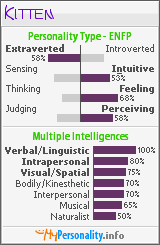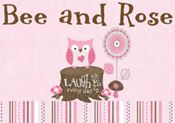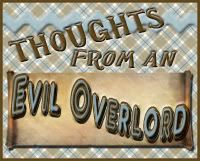Over the past few years, we have lost some treasured childhood icons: Mister Rogers. Captain Kangaroo. (And for those of us raised on The Carol Burnett Show, Harvey Korman). Yet one childhood icon continues to touch us all through his work on Sesame Street: Muppeteer Caroll Spinney, or, as he is otherwise known, Big Bird.
In 2003, Spinney published The Wisdom of Big Bird (and the Dark Genius of Oscar the Grouch): Lessons from a Life in Feathers. This tome isn't really a memoir, nor is it a straight collection of anecdotes from the Sesame Street set. Spinney groups his memories in a series of life sessions, which serve as the chapter titles. You will find such chapters as "Listen to Yourself", "Listen to Your Cabbie", and "Don't Let Your Feathers Get Ruffled."
The chapter "Don't Let Your Feathers Get Ruffled" addresses the growing popularity of Elmo, that little red monster that has captured the hearts of millions of 21st century preschoolers. Notice how I say 21st century preschoolers. As a 20th century preschooler, for me, Big Bird remains the one true symbol, the core, the heart, the epitome of Sesame Street. I will admit that Elmo has grown on me, but I just can't stand how, in today's marketing age, where EVERYTHING has an endorsement, so many things are Elmo-driven. (Today, in K-Mart, I saw a Hannah Montana DVD player and a Hannah Montana iPod docking station. But that's another post for another day).
Spinney writes about the Big Bird-to-Elmo transition in a very professional, respectful manner: "The Bird was still in almost every episode of the show, but there was a new kid in town. I had to get used to sharing the attention, both in terms of my characters, and myself." (p. 125) "Sharing and cooperation, getting along with others, and recognizing one another's strengths are some of our most important social messages, after all. I think there is enough room on Sesame Street for everyone." (p. 126)
You won't find any juicy behind-the-scenes gossip in The Wisdom of Big Bird. The closest thing that this book comes to such dish is when Spinney describes the making of the special Big Bird in China, and writes about its director, Jon Stone, a major force in getting Sesame Street on the air: "...for some reason that I've never been sure of, he went through periods of not liking me at all. So, while I knew the choice of Jon Stone would make it a difficult trip, I also knew that it would result in a very good show." (p. 87)
Two portions of the book almost reduced me to tears. The first portion was when Spinney wrote about the death of Will Lee, the actor who portrayed Mr. Hooper. You know how there are those who remember exactly where they were when JFK was assassinated? I remember where I was when the episode with Mr. Hooper's death aired: it was the day after Thanksgiving, I was 7 or 8 years old, and I was at my aunt and uncle's house. I had a lot of trouble watching that episode, as I'm sure other kids my age did at the time. Spinney confirms that there wasn't much acting during the scene where the adults tell Big Bird of Mr. Hooper's death; it was all honest, raw emotion that the actors felt upon the death of a family member.
The other tear jerking moment occurred as Spinney wrote about his boss, the late Jim Henson. As a rabid Muppet fan, Jim Henson's death was devastating for me. I was a freshman in high school, and it was the same day that Sammy Davis Jr. had died. (Talk about losing your childhood icons!) Spinney remembers Henson fondly, not just as a boss, but as a friend. Not only was Jim Henson the man who helped further his career, he was also responsible for Spinney meeting his wife. (Spinney's wife worked at CTW when they met).
Caroll Spinney writes with modesty, gentleness, and humility--something that is rare in many show business professionals these days. However, he is very aware of Big Bird's status as an American pop culture icon, but writes about it in a "gee, I can't believe it happened to me" attitude, which is refreshing.
I recently learned that there has been another Muppeteer apprenticing Caroll Spinney in the event that he can no longer perform Big Bird--and that this apprentice has gradually been assuming more of the Big Bird role. Given Spinney's age--he's 75 as of this writing--that is not surprising. However, the potential loss of yet another childhood icon is almost too much for me to bear.
The Insecure Writer’s Support Group and 5K at Sixty
14 hours ago


































No comments:
Post a Comment